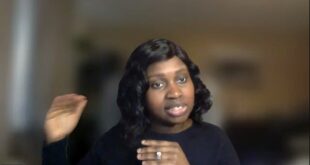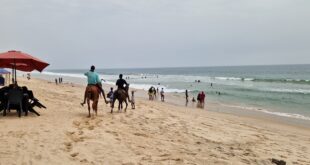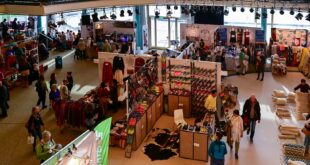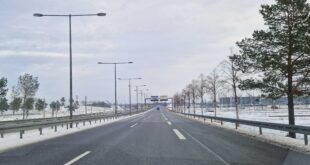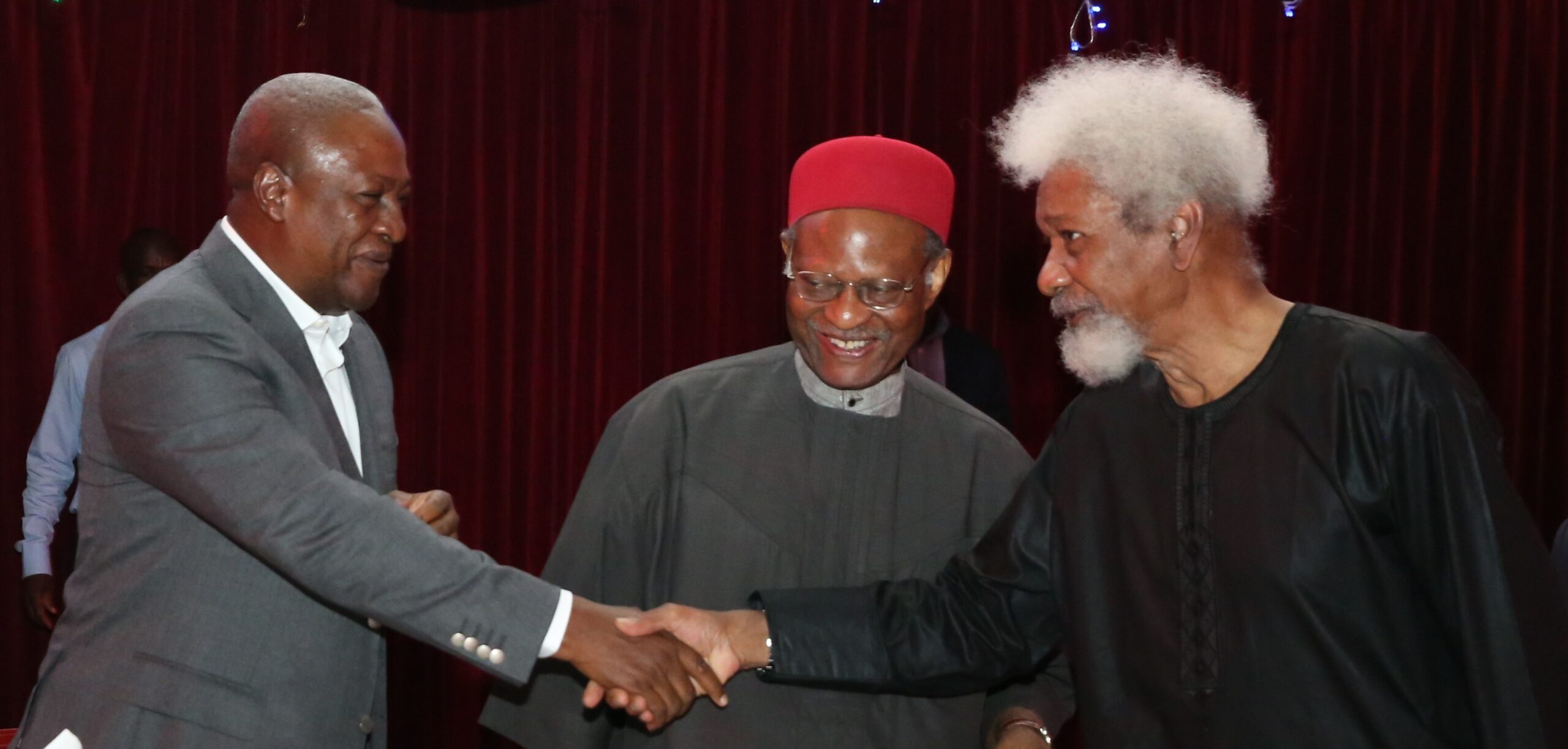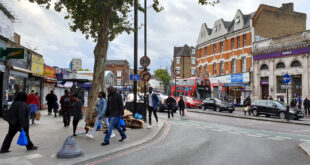The age grade system is an important feature of the culture of the Igbo people of Nigeria and other peoples in Africa. A modern role of this system, which builds sub-groups in a community according to the ages of their members, is the championing of community development.
The following report is about Ogbo Midwest Igbuzo, an Ibusa age group in Oshimili North Local Government Area of Delta State, and how they have supported the less privileged in their community due to the hardship caused by the lockdown measures enforced by the government to contain the coronavirus pandemic
—-
An estimated twenty-five thousand indigenes and residents of Igbuzo (Ibusa) in Oshimili North Local Government Area of Delta State are adversely affected by the hardship occasioned by the Coronavirus lockdown. Ogbo Midwest Igbuzo, an Ibusa age group estimates that out of this vulnerable population, the hardest hit are the orphans and the very elderly without dependants. Following recommendations from the leadership of the Age Group, the general membership decided to throw its weight behind this most vulnerable population group through a relief intervention programme.
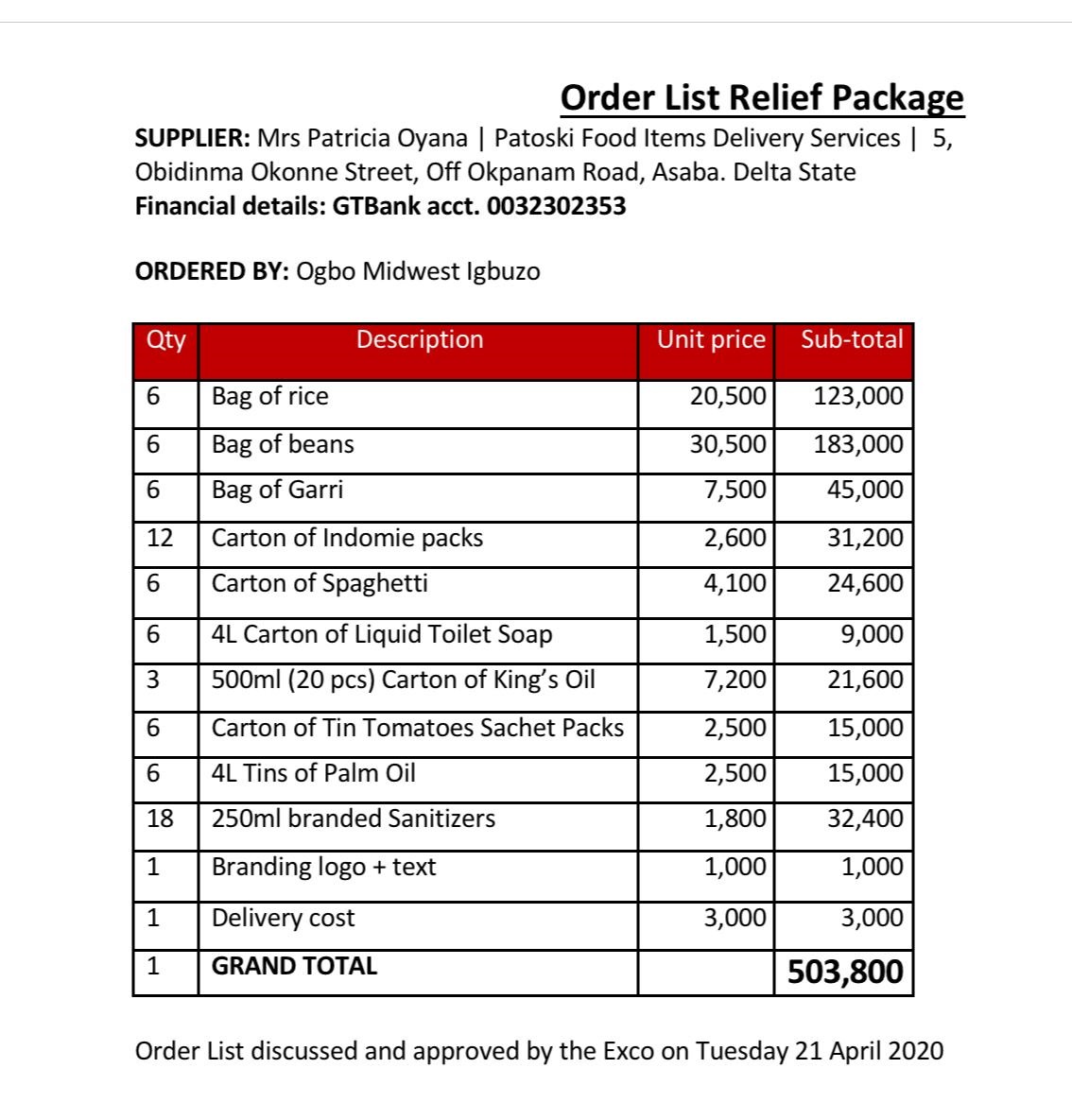
Justifying this decision in a note by the leadership of Ogbo Midwest Igbuzo to its members for approval, the President, ad interim, Collins Nweke, on behalf of the Executive Committee (ExCo), explained: “though relief interventions from government and private individuals exist, none of these initiatives pay any direct and structured attention to orphans and the very elderly amongst us. Yet this is a target group that can rightly be regarded as the most vulnerable of the vulnerable. They are therefore most deserving of our attention and benevolence”.
Less than 48 hours after establishing its targeted budget and launching a fund mobilisation campaign, the Age Group of Ibusa sons born between January 1963 and December 1965, not only reached its target of 0.5 Million Naira but exceeded it by 20 per cent.
“I have not seen anything like it before,” exclaimed the General Secretary of the Group, Moses Emeagwai. “The enthusiasm of members during the opening hours of donation was so infectious that it was almost challenging to keep up with the inflow of donation alerts,” he added laughingly. He went further to explain that any doubts that he may have harboured about the giving spirit of Ibusans and friends of Ibusa when it comes to ameliorating the suffering of the less privileged was diminished by the great outcome of this project. “The saying that little drops of water make a mighty ocean certainly rings true here. 5K here, 7K Naira there, all added up quickly to place us in good stead to be of value to fellow Ibusans,” he concluded.
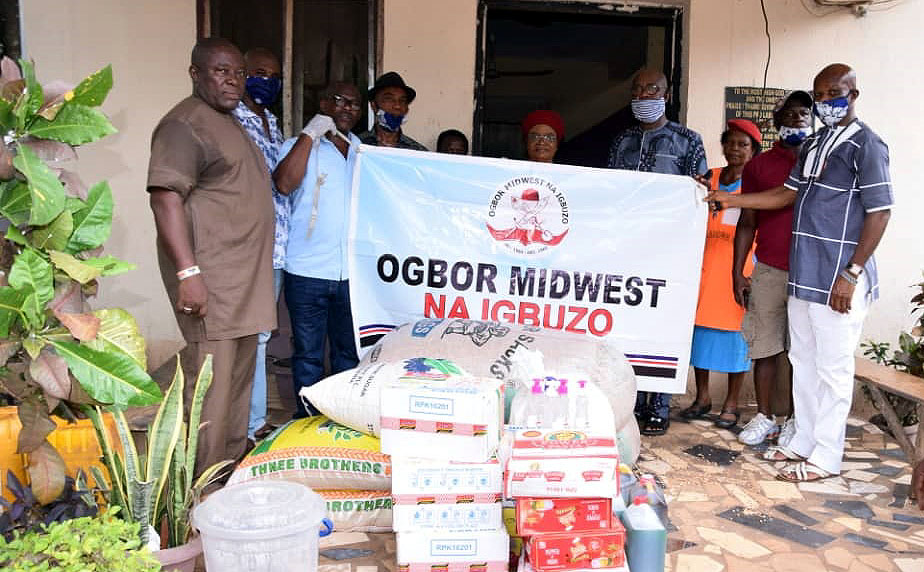
Recounting his experience, the Treasurer of the Group, Onowu Henry Onianwa, reminisced on the large heart of the larger society within and outside Igbuzo. “Sometimes the help we seek in our efforts to be a force for good in our society is just a phone call away. If I am convinced that this is a project worthy of my backing, I do not see why a select number of friends, associates and like-minded people won’t be convinced too. And I was right because I observed that I simply needed to introduce the topic and before I could say much further, I am asked to send in the account details for transfer,” he narrated, describing his experience as amazing.
Age Grades or Groups over the years are avenues for social interaction among members. From Ogbo Nkulu of 1852 – 1854, Ogbo Nkpulu Olulu of 1906 – 1908 through Ogbo Felianza 1917 – 1919 to Ogbo Chi ji eshishe ji 1946 – 1948 and Ogbo Mbido Aya Biafra of 1966 – 1968, each Age Group has always received a special name that helps define its position in Igbuzo relative to other Age Groups.
It is said that in the pre-colonial era, newly-formed Age Groups had to prove their maturity by defending the community against hostile neighbours or enemies and are marked by an initiation rite.
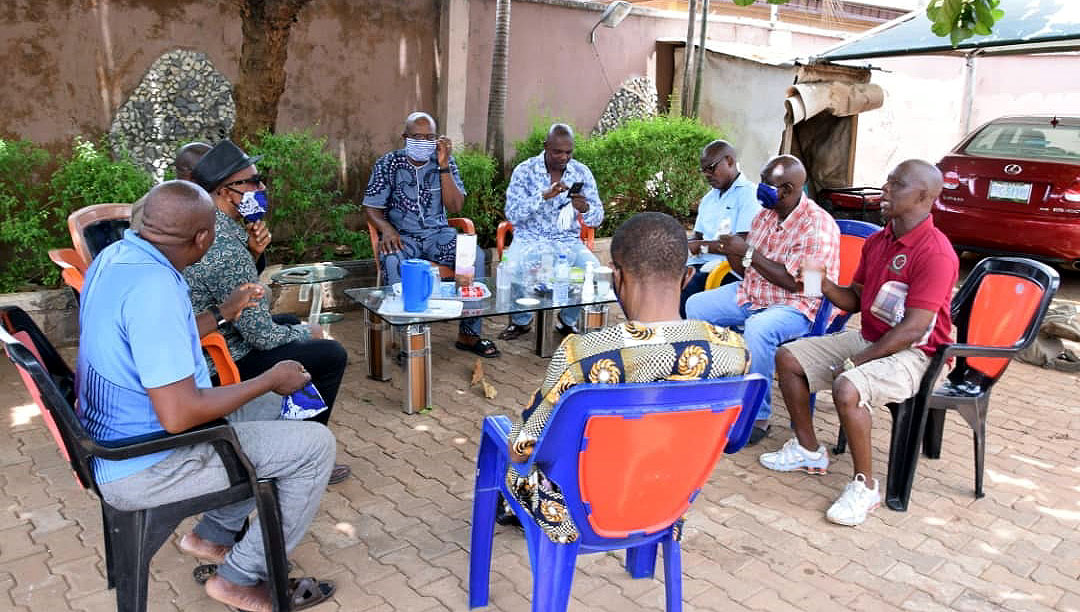
“While the fundamentals remain same, it is obvious that the concept of Age Grade would have to reinvent itself if it is to stand the test of the vagaries of the 21st Century,” opined the President, ad interim, Collins Nweke. “The organisational realities we face today are different from those our fathers and grandfathers faced in organising the Ogbo’s. Many of our members are scattered across Nigeria and the Diaspora. Ordinarily this could be seen as a reality that presents organisational bottlenecks. Far from it! With modern IT and communication infrastructures, Ogbo Midwest is able to hold meetings across the globe, uniting members in Igbuzo with those in Lagos, Brussels, London, Enugu, California, Port Harcourt, Toronto and more,” he asserts.
While Ogbo Midwest is currently concluding the fine points of its Constitution under the Chairmanship of Barrister Charles K. Nmarkwe, one incontestable fact is the resolve of the Group to position itself as agent for cohesion, peace and development of their Igbuzo hometown!
“Age Groups have always been traditional tools. We must be determined to retool for deeper social and cultural impacts in Igbuzo,” Nweke concludes.
On Thursday 23 April 2020, Ogbo Midwest Igbuzo, represented by Hon. Pat Mozea and Onowu Henry Onianwa, presented relief packages to Pro Labore Dei Orphanage & Elderly Nursing Homes in Ogboli and Umuodafe Villages respectively as well as Shalom Orphanage in Umuehea Village.
Further press inquiries? Contact: Hon. Pat Mozea, Phone/WhatsApp: +234 803 366 9135
 THE AFRICAN COURIER. Reporting Africa and its Diaspora! The African Courier is an international magazine published in Germany to report on Africa and the Diaspora African experience. The first issue of the bimonthly magazine appeared on the newsstands on 15 February 1998. The African Courier is a communication forum for European-African political, economic and cultural exchanges, and a voice for Africa in Europe.
THE AFRICAN COURIER. Reporting Africa and its Diaspora! The African Courier is an international magazine published in Germany to report on Africa and the Diaspora African experience. The first issue of the bimonthly magazine appeared on the newsstands on 15 February 1998. The African Courier is a communication forum for European-African political, economic and cultural exchanges, and a voice for Africa in Europe.


